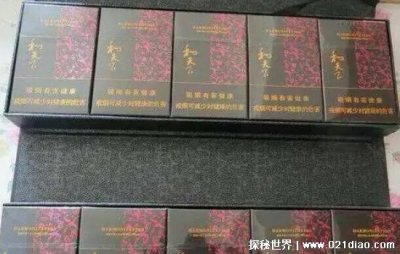buses怎么读(buses怎么读的音标)
buses怎么读(buses怎么读的音标)
名词的分类、可数名词的数、不可数名词数量的表达
名词的修饰、名词所有格、名词的用法
定义
:名词=名字、名称
(能叫得出名字或名称的都是名词)

知识点一:名词分类:专有名词和普通名词
专有名词:表示人名、地名、国家名、组织、机构、学校名、星期、月份、节日名、报刊、团体名等专有名称的词。
Tom Mr Brown Dr. Green London Shanghai China American Bank of China 中国银行 the Red Cross 红十字会
Hope Primary School 希望小学 Monday 星期一 May 五月 Children’s Day 儿童节 Class Two Grade Six 六年级二班
注意:1. 专有名词第一个字母必须大写,
其中的虚词,如:冠词、介词等第一个字母一般不用大写
2.由普通名词构成的专有名词一般要加the, the Great Wall
普通名词分为
可数名词
和
不可数名词
可数名词(个体名词和集体名词)
1、
个体名词
(指单个的人或者事物)
pen 钢笔 tree 树 teacher 老师 book 书本
2、
集体名词
(指一群人和物的总称)
people 人们 family 家人 police 警察们 team队
一个人:a person 五个人:five people
如果是 five peoples 十个名族
不可数名词(物质名词和抽象名词)
1、物质名词
(无法分成个体的物质材料的名词)像食品、饮料、液体、气体、金属等(除非借助于容器)
water 水 air 空气 milk 牛奶 paper纸 air 空气 rice米饭
2
、
抽象名词
(表示状态、品质、行为、感情等抽象的概念)看不见、摸不着,只能感受和体会
health健康 friendship 友谊 love 爱 knowledge知识 honesty诚实
知识点二:可数名词的数
普通名词分为
可数名词和不可数名词
可数名词:
可以用数量计算的 pen book tree flower
不可数名词:不
可以用数量计算的 water milk air rice
可数的名词
1、表示数量是“一”为单数前要加a/an , a cat an apple
2、超过“一”时,为复数一般要加s , two books 、 ten boxes
一、可数名词单数变复数的规则变化。
1、
一般情况下直接+s
: book
s
map
s
apple
s
bag
s
tree
s
face
s
orange
s
horse
s
cat
s
student
s
bird
s
读音:
清
辅音后读
[ s ]
book
s
map
s
浊
辅音和
元
音后读
[z ]
apple
s
bag
s
tree
s
ce, ge, se
后读
[?z ]
face
s
orange
s
horse
s
t
后读
[ ts ]
,
d
后读
[dz ]
cat
s
student
s
bird
s
2、以
s, x, ch, sh
结尾 ,+
es
读
[?z ]
bus–bus
es
box–box
es
watch–watch
es
brush—brush
es
注意特例:
ox—ox
en
stomach—stomach
s
3、以
辅音字母(除a e i o u)+y
结尾,将y 变成i 再加es: 读
[z ]
bab
y
–bab
ies
cand
y
–cand
ies
strawberr
y
—strawberr
ies
librar
y
— librar
ies
cit
y
–cit
ies
lad
y
–lad
ies
part
y
–part
ies
记住一定要是辅音字母+y结尾的,才能将y变成i再加es, 若是元音+y 结尾的,直接+s 就可以了。
boys toys guys
4、以字母o 结尾的,通常
有生命的尾巴长
+es : 读
[z ]
hero—hero
es
potato–potato
es
tomato–tomato
es
mango—mango
es
negro–negro
es
速记:黑人(Negro)英雄(hero)
爱吃
土豆(potato)、西红柿(tomato)
和
芒果(mango)
这些单词后都是加
es呀!(两人两菜一水果)
无生命的尾巴短+s
: photo—photos radio—radios ,piano–pianos
特例:
hippo–hippo
s
河马 kangaroo–kangaroo
s
袋鼠
bamboo—bamboo
s
竹子
5、以f/ fe 结尾,要将f/ fe 变成v 再加es: 读
[vz ]
速记:妻子(wife)持刀(knife)
去宰
狼(wolf),小偷(thief)
吓得发了慌,躲在
架子(shelf)
保
自(self)命(life),半片(half)树叶(leaf)
遮目光
.
这些单词都是将f/fe变成v再加es.
wi
fe
–wi
ves
kni
fe
–kni
ves
wol
f
–wol
ves
thie
f
–thie
ves
shel
f
–shel
ves
sel
f
–sel
ves
li
fe
–li
ves
hal
f
—hal
ves
lea
f
–lea
ves
特例:giraffe–giraffe
s
长颈鹿 roof–roof
s
屋檐 golf–golf
s
高尔夫球
速记:长颈鹿站在屋檐下打高尔夫球
scarf—scarves或者scarfs 两种变法
二、不规则名词变复数
1、元音字母的内部变化
(a–e ,oo–ee )
a–e
: m
a
n-m
e
n wom
a
n-wom
e
n postm
a
n-postm
e
n
policem
a
n-policem
e
n policewom
a
n-policewom
e
n
Frenchm
a
n-Frenchm
e
n Englishm
a
n-Englishm
e
n
snowm
a
n-snowm
e
n
注意:
German-Germans human—humans
oo—ee
:f
oo
t-f
ee
t t
oo
th-t
ee
th g
oo
se-g
ee
se 鹅
特例:b
oo
t—b
oo
ts 靴子
特殊变化:Child–child
ren
mouse–mice(老鼠) mouse
s
( 鼠标) ox-ox
en
公牛
2. 单复数同形:
Chinese– Chinese Japanese—Japanese Swiss–Swiss
fish–fish deer — deer sheep– sheep
速记: 中日瑞人民爱吃鱼鹿羊
补充:①
I’m
Chinese
. 我是中国的
(adj.中国的)国籍
I’m a
Chinese
student
. 我是一名
中国的
学生
I’m a
Chinese
.
我是一名中国人
(n.中国人)
I am learning
Chinese
.我正在学
中文(n.中文)
② fish
鱼(一只只鱼)可数名词,单复数同形 a fish ten fish
鱼肉,不可数名词 some fish一些鱼肉
鱼的种类,可数名词(复数要加es) some fishes 一些种类的鱼
3、某国人变复
Chinese- Chinese Japanese- Japanese Swiss–Swiss 瑞士
Frenchman- Frenchmen Englishman-Englishmen
Indian–Indians American–Americans German-Germans
口诀:中日瑞不变,英法加man变,其余s加后面
三、 复合名词的变化
1、不用变修饰词,只用变后面一个名词就可以
girl friend—girl friends apple tree—apple trees
shoe factory —shoe factories
2、复合名词前是man 和woman ,两部分都要变
woman teacher —women teachers
man doctor—men doctors
3.有一些以复数形式出现的名词也作定语
clothes shop 服装店 sports shoes运动鞋 glasses store 眼镜店
知识点三:不可数名词的数量表达
不可数名词:
(不能数)取下任何一部分都还是原来的东西
不可以与a /an连用,可以和the 连用。没有复数形式,永远用原形。
1、常见的不可数名词:
物质名词和抽象名词
口诀:
金
(金属 gold /iron)
木
(wood)
水
(液体water/milk/juice)
火
(fire)
土
(sand/soil/earth),
米
(rice)
面
(bread/flour)
肉
(肉类beef/pork)
钱
(money)
布
(cloth),液体粉末不可数,还有
情感
与
抽象
(love/ friendship/health/happiness/knowledge/plastic/paper/news/)
2. 不可数名词数的表达:需要用“量词”来表达
a +量词+of +不可数名词
常见的量词:
① 容器 cup,glass, bottle, bowl,plate,can(罐),tin(听)
② 形状 piece (片),loaf(条),bar(块) ,slice(丁) pile(堆)
③ 计量单位 pound,kilo(gram),gram,ton (吨)
④ pair 双、对、副……
举例: a bowl of rice一碗米饭 three bowls of rice 三碗米饭
a glass of milk 一杯牛奶 two glasses of milk 两杯牛奶
a piece of paper 一片/张纸 ten pieces of paper 十片/张纸
a bar of soap 一块肥皂 four bars of soap 四块肥皂
a loaf of bread 一条面包 eight loaves of bread 八条面包
当基数词大于1时,只需要计量名词变复数。
十分给力的量词 :
a piece of music 一首音乐 a piece of news一条消息
a piece of advice一条建议 a piece of cheese一片乳酪
3、不可数名词单独作主语,谓语动词要用单数
The air is fresh 空气是新鲜的
The sugar is sweet 糖是甜的
The coffee smells good 咖啡闻起来很香
如果不可数名词加上量词,那就量词定单复
This cup of tea is my father’s 这杯茶说我爸爸的
The five bags of rice are my uncle’s .那5袋大米是我叔叔的。
补充: 量词只能修饰不可数名词吗?NO, 量词也可以修饰可数名词
a basket of eggs 一篮子鸡蛋 a bag of apples 一袋苹果。
翻译句子:
有一篮子桃子 There
is
a basket of peaches .
有一群人 There
are
a crowd of people . crowd 人群,不是量词
有许多的书 There
are
a lot of books . lot 不是量词
四、有的名词既可以当可数名词也可以当不可数名词
glass 玻璃杯(可数) glass玻璃(不可数)
time次数(可数)time 时间(不可数)
chicken 小鸡 (可数) chicken鸡肉(不可数)
fish鱼(可数) fish鱼肉(不可数)
room 房间 (可数) room 空间 (不可数)
orange橙子(可数) orange 橙汁(不可数)
exercise练习、体操(可数)exercise锻炼、运动(不可数)
food食物种类(可数) food食物总称(不可数)
知识点四:名词的修饰 (修饰名词的词是定语)
一般修饰名词是
形容词
(形容词作定语)
a
fat
pig 一只胖猪 three
fat
pigs 三只胖猪
形容词无复数
1、也有名词修饰名词的 : a
apple
tree 一颗苹果树
(apple名词修饰名词tree,起到adj.作用,名词作定语)
a
wolf
dog 一只狼狗 two
wolf
dogs 两只狼狗
a
girl
student 一个女学生 three
girl
students 三个女学生
总结:复合名词变复数
前不变,后变
a
woman
nurse
一个女护士 ten
women
nurses
十个女护士
a
man
teacher
一个男老师 five
men
teachers
五个男老师
总结:复合名词变复数 ,有男人女人,都要变。
最后总结:前不变,后变,有男人女人,前后都要变
2. 数杠名单
(复合形容词,作定语)
后跟名词才可以
基数词—名词单数(形容词)+名词
an
eight—year—old
boy 一个八岁的男孩
a
five—star
hotel 一个五星级的 酒店
a
100—meter –long
bridge 一个100米长的桥
a
ten—day
holiday 一个10天的假期
We will have
a
(
C
) holiday
We will have (
D
) holiday
A. two months B. two—months
C. two – month D. two months’
注意:
所
(名词所有格’s)
冠
(a/an/the)
物
(物主代词my /her )
指
(指示代词 this /that/these/those )
数
(some、any),
限定选其一 有 “a”就选“—”
3、
动名词
作定语
动名词(V+ing)、动名词,动词后加名词,表功能(用来做什么的)
a
swimming
pool 一个游泳池 (用来游泳的池子)
some
drinking
water 一些饮用水 (用来喝的水)
some
eating
oil 一些食用油(用来吃的油)
现在分词(V+ing)表动作
a
swimming
duck 一个正在游泳的鸭子
a
singing
teacher 一个正在唱歌的老师
动名词作定语,紧挨名词才可以
Tree Planting Day 植树节 story telling club 讲故事俱乐部
paper cutting machine 切纸机=paper cutter
dish—washing machine 洗碗机 = dish washer
4、修饰名词的不定代词
a、只修饰
可数名词
的有:many许多 few很少(否定含义) a few
I have
many
friends 我有许多的朋友
I have
a few
books about robots 我有几本关于机器人的书。
She is so shy that she has
few
friends.她是如此的害羞,以至于她几乎没有朋友。
b.只修饰不可数名词的有:much许多 little 很少(否定含义) a little一点
He has
much
homework to do every day .
他每天都有许多的作业要做
There is
a little
water in the bottle 在瓶子里有一点水。
There is
little
meat in the fridge ,I will buy some.在冰箱几乎没有肉了,我将要去买一些。
c. 既修饰可数名词又修饰不可数名词的有:some一些 (肯定句,几个委婉提问,提建议疑问句中)
any一些(否定句/一般疑问句) a lot of 许多 lots of 许多 plenty of 大量的、充足的
There are
some
books on the bookshelf .书架上有一些书
I have
some
work to do today .今天我有一些工作要做
Do you have
any
apples ?你有一些苹果吗?
There isn’t
any
water in the bottle .瓶子里没有水
There are
a lot of/lots of
flowers in the garden.花园有许多的花。
知识点五、名词所有格
所有格的形式: ’s 所有格和of 所有格形式
1、’s 所有格,常用来表示有生命的东西
单数名词末尾加 ’s : the girl’s room 那个女孩的房间
Tom’s mother 汤姆的妈妈
以-s结尾的复数人称名词末尾只用加’: Teachers’ Day 教师节
复数名词不以s结尾时,仍加’s : children’s books 童书
重点难点:a、表示各自拥有和共同拥有的名词所有格
表示两人共同拥有的东西时,只在最后一个名词后+’s
Lucy and Lily ‘s room 露西和莉莉共同的房间(说明她们俩住一起)
表示各自拥有,两个名词后都需要+’s
Lucy’ s and Lily ‘s rooms 露西和莉莉各同的房间(说明她们俩各自住各自的,那就有两个房间了,所有 room 加了s)
b、有些表示时间、距离、地点、国家,自然现象等无生命的东西的名词,
名词后面+’s,还可以表示诊所,店铺,或者某人家的地点名词
时间:two days’ trip 两天的旅行 today’s newspaper 今天的报纸
距离 :five minutes’ walk 五分钟的步行时间
地点:Beijing ‘s street 北京的街道 the city’s parks城市的公园
自然现象:the moon’s light 月光
doctor’s 诊所 uncle’s 叔叔的家 butcher’s 肉店
2、“of”所有格,表示无生命的东西 :
名词+ of + 名词
a map of China中国地图 the bottom of the box盒子底部
the window of the room(房间的窗户), the cover of the book(书的封皮)
抽象的概念: the price of success 成功的代价
3、
双重所有格,
of +’s或 of +名词性物主代词结构,
表示许多中的一个(或一部分)
a friend of mine 我的一个朋友 a car of my uncle’s 我叔叔的一辆车
a photo of my sister’s 我妹妹的一张照片
4. 初中所有格用 to …..的
The answer to the question 问题的答案 the key to the door 门的钥匙 the way to the school 去学校的路
名词所有格口诀:
名词所有格,s 前面加一撇’,复数 s 放在尾,后加一撇就完结,两人共有算一个, 后面只加一个撇,各有各后都要加。
注意的节日:the Teachers’ Day(教师节), the Children’s Day(儿童节), the Mother’s/ Father’s Day(母亲节/父亲节)
特别要注意的表达方式:men’s shoes(男鞋), women’s suits(女套装)
知识点六:名词的用法
1、 作主语
My father
likes playing football 爸爸喜欢踢足球
The air
is fresh 空气是新鲜的
注意主谓一致,不可数名词当主语,谓语动词要用单数
2、 作表语
This is
my pen
这是我的钢笔
3、
作宾语
I buy
a dress
我买了一件裙子
4、 作定语
A 名词作定语要用单数形式
egg noodles 鸡蛋面
computer game 电脑游戏 country music 乡村音乐
B 个别名词作定语要用复数形式
clothes shop 服装店
sports meeting运动会 parents meeting 家长会
C 复合形容词作定语结构为“数词+连字符+名词单数”或数词+名词所有格
an 8-year-old boy 一个8岁的男孩
a two-day meeting =a two days’ meeting 为期两天的会议
-

- 金字旁一个乐(带金的字寓意好的字)
-
2024-01-30 20:32:29
-
- 娱乐圈公认的十大超级大帅哥(娱乐圈公认的十大超级大帅哥2021)
-
2024-01-30 20:30:14
-
- 最早的国际邮展是在哪个国家(世界上最早的国际邮展是在哪个国家)
-
2024-01-30 20:27:59
-
- 黑色沙漠刷怪赚钱地点(黑色沙漠刷怪升级路线)
-
2024-01-30 08:46:14
-

- 英雄不问出处什么意思(英雄不问出处什么意思爱情公寓)
-
2024-01-30 08:44:00
-

- cos平方公式(cos平方公式有哪些)
-
2024-01-30 08:41:45
-

- 女孩青春期的孩子怎么教育和疏导(与叛逆期女孩沟通的9个技巧)
-
2024-01-30 08:39:30
-

- 1盎司黄金多少克(黄金价格今日最新价多少钱一克)
-
2024-01-30 08:37:16
-

- 有些人终会被缘相遇是什么歌(有些人终会被缘相遇是什么歌炎热的风我却很)
-
2024-01-30 08:35:01
-
- 高尚情操的意思(高尚情操的意思网络用语)
-
2024-01-30 08:32:46
-

- 福建面积和人口(福建人口及面积)
-
2024-01-30 08:30:32
-

- 京东白条不分期是什么意思(为什么不建议开通京东白条)
-
2024-01-30 08:28:17
-

- 拼多多好友在哪里查看(拼多多好友在哪里查看不到怎么办)
-
2024-01-30 08:26:02
-

- 蚕丝衣服洗一次就缩水一次吗(蚕丝衣服多久洗一次)
-
2024-01-29 20:44:19
-
- c盘一般留多大合适(win11c盘一般留多大合适)
-
2024-01-29 20:42:04
-

- 石榴树为什么不能种在家门口(石榴树必须要两颗一起种吗)
-
2024-01-29 20:39:49
-
- 一个口一个羊怎么读(一个口一个羊怎么读音节)
-
2024-01-29 20:37:35
-

- 猫是什么进化而来的(猫是什么物种进化的)
-
2024-01-29 20:35:20
-

- endangered怎么读(endangered怎么读什么意思)
-
2024-01-29 20:33:05
-

- 每日一字:身怎么读
-
2024-01-27 22:02:02





 雌性大象生殖结构及原理
雌性大象生殖结构及原理 和天下多少钱一条,1000元一条(拥有多个不同的系列)
和天下多少钱一条,1000元一条(拥有多个不同的系列)